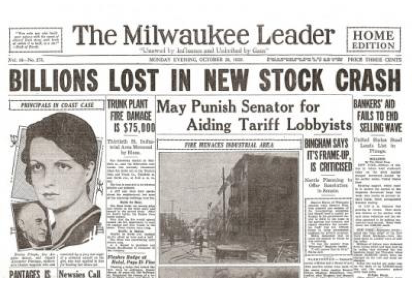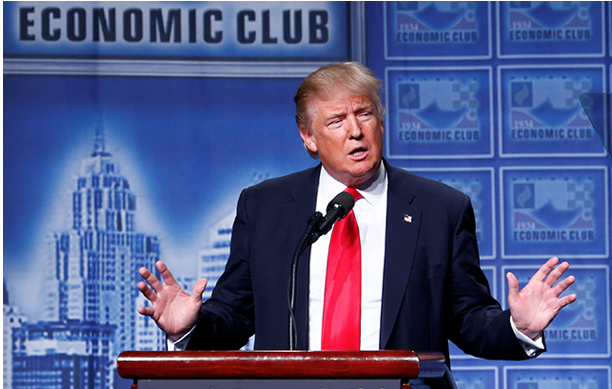CommentsVIEW FROM HERE--Federal economic policy started with Alexander Hamilton. As the first secretary of the treasury, he insisted that the U.S. government assume the debt incurred by states during the American Revolution. Taking responsibility for the states’ war debt enabled the fledgling U.S. government to, in essence, establish credit with other nations.
In the decades following passage of the Assumption Act of 1790, presidents and Congress did little more than manage debt. There was no economic policy. Public expenditure was minimal and so was taxation. Some administrations spent money on public works such as roads and canals as a means of encouraging commerce. After the Civil War, the U.S. gave millions of acres of land to railroads and homesteaders in an effort to boost settlement beyond the Mississippi.
The federal government also attempted to protect American industry by leveling tariffs on imported goods. Manipulating tariff rates was the primary focus of economic policy for most of the 19th century and early 20th century.
“Laissez faire” was the hallmark of America’s economic system. The government stayed out of business. Regularly, the economy collapsed as serious “panics” closed down factories and put people out of work. Washington’s response was to commiserate and hope for better times.
 Warren Harding, Calvin Coolidge, and Herbert Hoover embodied the zeitgeist of the “roaring ‘20s.” Bankers, industrialists, and even gangsters were the celebrities of their time. Wealth was fame. The government’s job was to get out of the way of the capitalists. It all worked great until it didn’t.
Warren Harding, Calvin Coolidge, and Herbert Hoover embodied the zeitgeist of the “roaring ‘20s.” Bankers, industrialists, and even gangsters were the celebrities of their time. Wealth was fame. The government’s job was to get out of the way of the capitalists. It all worked great until it didn’t.
The stock market crash of 1929 ignited a fire that left the American economy a smoking ruin. People turned to government to fix it. Franklin Roosevelt’s New Deal ushered in the modern era of economic policy. Touching nearly every aspect of commerce, federal agencies regulated money markets, labor practices, trade rules, and became the employer of last resort for millions of unemployed Americans.
Since then, the federal government has employed numerous economic policies to shape business practices and the wider economy. Administration after administration—Republican and Democrat—have followed the policies and practices laid down by FDR. Despite his anti-government bluster, Ronald Reagan left most of the government’s economic mechanisms in place.
All this has changed with the advent of Donald Trump. His appointees are taking sledge hammers to longstanding economic policy. Under the guise of reform, they are eliminating any rules viewed as obstacles to corporations and the wealthy. Anything protecting workers and consumers is considered an impediment to Trump’s promise of “jobs, jobs, jobs.”
Apparently he and his minions believe that recreating the conditions of the 1920s (or 1890s) will result in decades of untrammelled wealth creation. The great depression of 2007 should be on the mind of every politician in Washington. But, Trump and his followers aren’t interested in the lessons of history.
Whether people like it or not, ours is a global economy. You cannot build trade barriers without suffering the consequences of higher prices. Withdrawing from the Trans Pacific Partnership treaty and the North American Free Trade Ageement is not going to suddenly create new jobs any more than the tax cut giveaway to the one percent will.
Withdrawal from the TPP will hit American farmers especially hard. Canadian Premier Justin Trudeau recently announced agreement among the 11 nations negotiating the treaty. Asian buyers will now have a greater incentive to purchase wheat from Alberta, and not Kansas.
Slapping tariffs on things like washing machines and solar panels may make for good soundbites on Fox News, but the result will be higher costs and lost jobs. Trump’s rhetoric plays well in Peoria, but he’s not scaring Chinese manufacturers.
The economic policy of the Trump administration is wishful thinking. Get out your wallets, it’s going to cost you.
(Doug Epperhart is a publisher, a long-time neighborhood council activist and has served on the Board of Neighborhood Commissioners. He is a contributor to CityWatch and can be reached at: [email protected]) Edited for CityWatch by Linda Abrams.
-cw















